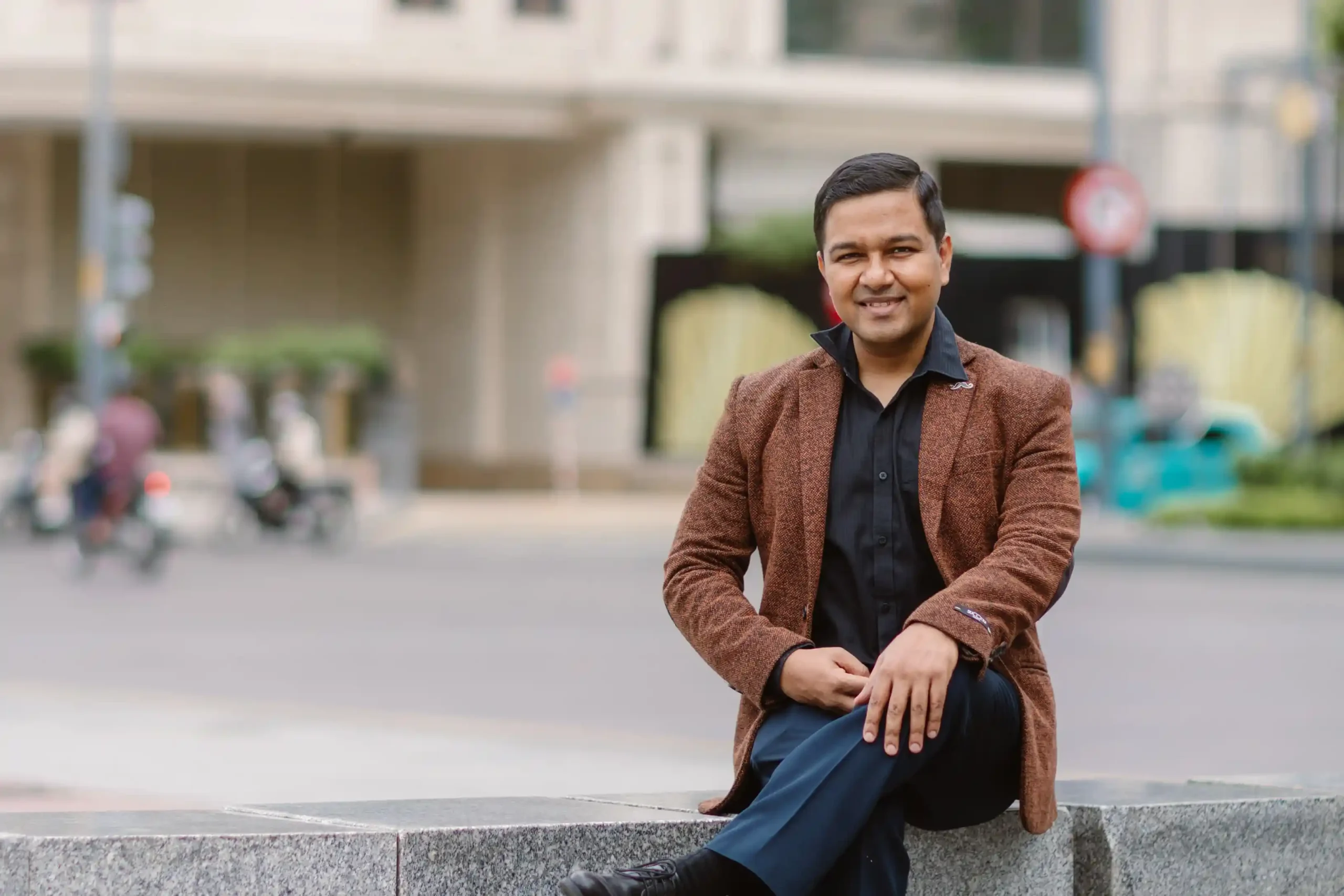In the snow-dusted cityscape of Tromsø, Norway, where the northern lights dance across the Arctic sky, Professor Dilip K. Prasad is orchestrating a quiet revolution in artificial intelligence. As the founder of Spermotile, Prasad embodies the rare combination of scientific brilliance and entrepreneurial acumen that defines true innovation leaders in today’s technology landscape.
“The pivotal moment in my career occurred around 2020-2021,” Prasad reflects. “Initially, I believed that AI research required only a single computer or server. However, the emergence of large language models shattered this notion, revealing the staggering computational demands of modern AI.”
This revelation—that cutting-edge AI models required not just one GPU but 10,000 or more, running continuously for over six months with costs running into millions—transformed Prasad’s perspective. It sparked a commitment to sustainable AI solutions aligned with the United Nations Sustainable Development Goals, launching him on a path to develop energy-efficient, environmentally responsible AI technologies that don’t sacrifice performance for sustainability.
From Academic Excellence to Real-World Impact
Prof. Prasad’s journey is marked by extraordinary academic achievements. Named among Stanford University’s Top 2% Scientists and having secured over €25 million in research funding, his prolific output spans groundbreaking research across 16 European countries and beyond.
When asked about maintaining such impressive productivity while pursuing innovation, Prasad’s answer reveals his pragmatic approach: “My commitment to research and innovation is driven by my passion for tackling the most challenging problems that have a meaningful impact on society.”
His research philosophy reflects a deep sense of public responsibility. “Since my work is funded by taxpayers’ money, I am committed to making the best use of these resources,” he explains. “Beyond academic contributions, I strive to move our inventions from research labs to real-world applications, ensuring that AI solutions create real, lasting value for society.”
This commitment to translational research—moving from theoretical advances to practical applications—distinguishes Prasad in a field often criticized for the gap between AI research and meaningful implementation.
The Entrepreneurial Scientist: Building Bridges Between Theory and Practice
Prasad’s entrepreneurial journey began unexpectedly in 2007 when, without any prior business knowledge, he participated in the Startup@Singapore competition and became a semifinalist. This experience eventually led to his selection for the Kauffman Fellowship, where he underwent intensive entrepreneurship training at MIT, Stanford University, and Harvard University.
“That program fundamentally changed the way I approach life and every activity,” Prasad notes. “It taught me to see not just research, but also its potential for real-world impact.”
The transition from pure academia to launching AI and medtech startups wasn’t a deliberate switch but an organic evolution. Prasad describes it as being “driven by the realization that research should not just remain in journal publications but should translate into scalable innovations that create tangible benefits for society.”
Spermotile: AI Innovation in Fertility Treatment
Among Prasad’s most impactful innovations is Spermotile, a sperm filtration device that integrates AI to enhance assisted reproductive therapy. The technology analyzes sperm motility, morphology, and dynamic motion patterns to select the highest-quality sperm for fertilization, significantly improving IVF success rates.
“This innovation reduces failed cycles, financial burden, and emotional distress for couples undergoing fertility treatments,” Prasad explains. “By optimizing sperm selection, Spermotile not only improves clinical outcomes but also minimizes the trauma and physical strain on women, making ART procedures more efficient and less invasive.”
The development of Spermotile exemplifies Prasad’s approach to innovation: identifying critical healthcare challenges and deploying AI solutions that deliver measurable improvements in patient outcomes and quality of life.
The Rocky Road of Medtech Entrepreneurship
Despite his successes, Prof. Prasad is candid about the challenges of launching medtech startups. As COO of Finiac, a medtech venture, he faced significant hurdles in securing clinical partnerships.
“It took over 12 months of persistent follow-ups, addressing queries, and demonstrating progress to finally secure a Letter of Intent to support our Singapore government grant application,” he recalls. “Additionally, hardware-based medtech startups face funding challenges, as only 5% of investors are willing to invest before securing clinical trials.”
These experiences have shaped Prasad’s advice to aspiring AI entrepreneurs: “Balance technical innovation with market-driven needs by securing traction early. Investors and soft funding agencies look for proof points beyond just technology.”
He emphasizes the importance of different types of traction—from user validation and clinical partnerships to regulatory progress and customer commitments. For hardware-based AI startups facing tougher funding hurdles, Prasad highlights the crucial role of government grants and strategic collaborations.
Scaling the Technology and the Human: Building AI Company Culture
Having secured funding and scaled startups, Prasad has developed a distinctive approach to building company culture in tech organizations. He prioritizes fostering a clear mission, transparency, and collaboration, while hiring adaptable, resilient talent.
“In deeptech, patience and perseverance are key,” Prasad observes. “I create an environment where challenges drive growth while avoiding employee burnout by ensuring work-life balance.”
His leadership style has evolved significantly over 18 years in entrepreneurship, transitioning from hands-on problem-solving to strategic empowerment. Today, Prof. Prasad focuses on vision, delegation, and team trust, ensuring alignment between technical excellence and market needs through mentorship, open communication, and a mission-driven culture.
The Global Collaborator: Bridging Cultures Through Technology
Prof. Prasad’s work spans 16 European countries and beyond, requiring exceptional skills in cross-cultural collaboration. His approach is pragmatic yet effective: regular digital meetings ensure continuous alignment and progress tracking, while periodic in-person gatherings strengthen relationships and improve coordination.
“By fostering open communication, cultural awareness, and shared goals, I create a collaborative environment where diverse teams work seamlessly across borders,” he explains. This global perspective enhances not only the technical aspects of his work but also its cultural relevance and adaptability.
Ethical AI: The Cornerstone of Sustainable Innovation
As AI’s societal influence grows, Prasad places ethics at the center of his research and entrepreneurial endeavors. His team follows the EU AI Act and earlier EU Ethics in AI guidelines, integrating bias detection, explainability, and regulatory compliance into their innovations.
“Ethics is fundamental in AI development, ensuring fairness, transparency, and accountability in systems that impact society,” Prasad states. Regular ethical reviews, interdisciplinary collaborations, and stakeholder engagement help his team create AI solutions that are technically robust and socially responsible.
His commitment to ethical AI extends to education as well. As the author of “Gender & Diversity Policy in AI” and instructor of a course based on this book, Prasad actively integrates inclusive AI practices into education and innovation, fostering multicultural collaboration in both academia and startups.
AI and Sustainability: Addressing Global Challenges
Looking toward the future of AI and sustainability, Prasad identifies rising energy demand as one of the biggest challenges. “AI’s energy requirements are outpacing production capacity, especially in developing and resource-poor countries,” he warns. “This could lead to a widening digital divide and a decline in the Human Development Index for many regions.”
Despite these challenges, Prasad sees tremendous potential for AI to advance sustainability through energy-efficient models, optimized resource utilization, and improved climate modeling. In his view, AI can significantly enhance weather predictions, carbon footprint monitoring, disaster response planning, precision agriculture, and efficient supply chains.
The Quantum Horizon: Preparing for AI’s Next Frontier
When asked about the future of AI, Prof. Prasad acknowledges the difficulty of making precise predictions given the field’s rapid evolution. “Currently, agentic AI is advancing, moving beyond text and image generation to automated decision-making across industries,” he observes.
Looking further ahead, he anticipates a major breakthrough “when quantum computing becomes commercially viable, unlocking unthinkable AI potential by meeting the massive computational demands of future AI systems.”
To prepare for this quantum horizon, Prasad focuses on developing scalable, interpretable AI that aligns with evolving regulations while fostering innovation that ensures AI remains ethical, efficient, and beneficial to society as it continues to reshape industries.
Beyond Accolades: Defining Success Through Impact
Despite receiving prestigious recognitions—including being named one of the “Most Admired Global Indians” and receiving an honorary doctorate in entrepreneurship—Prasad maintains a grounded perspective on success.
“For me, success is not just about recognition or awards, but about creating meaningful impact through research, innovation, and entrepreneurship,” he reflects. “It means solving real-world problems, mentoring the next generation, and ensuring that my work translates into scalable solutions that benefit society.”
This perspective was reinforced when Prasad received the Distinguished Alumnus Award from IIT(ISM) Dhanbad, a recognition given to only 0.01% of all IITians. While deeply honored, he sees it as “a milestone, not a destination,” maintaining his focus on creating meaningful impact.
The Road Ahead: Embracing Passion and Purpose
Looking back on his journey, Prasad expresses no regrets about the path he’s chosen. “My curiosity about almost everything has driven me to explore diverse paths,” he says. “Every experience, challenge, and decision has shaped my journey, and I see success as an evolving process rather than a fixed destination.”
His advice to young scientists and entrepreneurs reflects this philosophy: “Be passionate and purpose-driven. Instead of striving for work-life balance, aim for work-life integration, where your research or venture becomes a meaningful part of your life.”
Prasad encourages the next generation to push beyond perceived limits, embrace challenges, and stay adaptable. “Global impact comes from persistence, continuous learning, and the willingness to go beyond conventional boundaries,” he asserts. “Focus on solving real-world problems, collaborate across disciplines, and never hesitate to take bold steps toward innovation.”
A Legacy of Innovation and Mentorship
As Professor Dilip K. Prasad continues his work in Tromsø, his impact extends far beyond the technical innovations he’s pioneered. Through his research, entrepreneurship, and mentorship, he is shaping not only the future of sustainable AI but also the mindsets and approaches of the next generation of technology leaders.
In a world increasingly dominated by artificial intelligence, Prasad’s human-centered, ethically grounded approach offers a compelling vision for how technology can advance human welfare while respecting planetary boundaries. From the Arctic Circle, his innovations radiate outward, demonstrating that with the right blend of scientific rigor, entrepreneurial vision, and ethical commitment, AI can indeed become a powerful force for sustainable global development.




